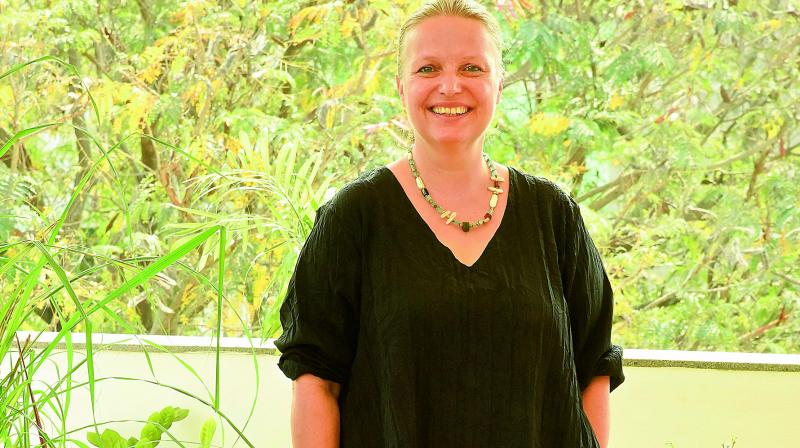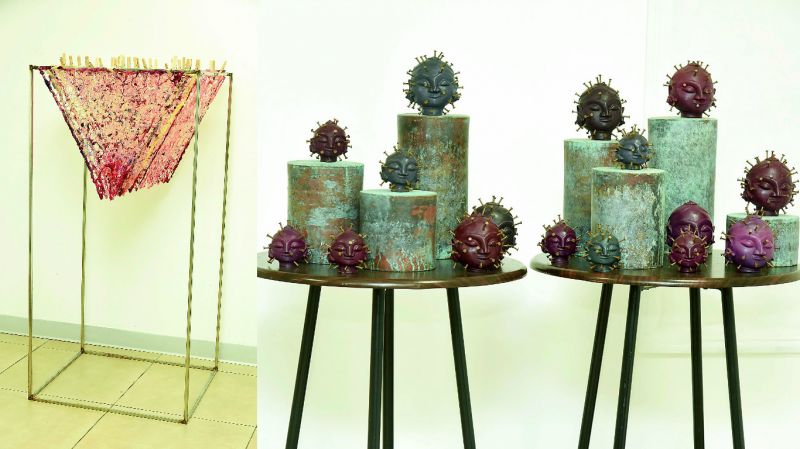Sense and sensuality
Artist Katharina Kakar's exhibition in the city, Crossing the Lakshmana Rekha, explores female sensuality and sexuality in a new light.

It takes a while to decipher the art installations that are part of the exhibition Crossing the Lakshmana Rekha — Shakti, Sensuality and Sexuality, by German artist Katharina Kakar. The objects used are everyday things — chillies, ash and spices. But, they are in fact allegories used to signify female sensuality and sexuality. The exhibition that is part of the 14th edition of the Krishnakriti festival of art and culture talks about the suppression of women’s sexual needs — a topic often discussed only in hushed tones.
 Artwork titled Screw you (Left) Artwork on vaginas titled, Hung to Dry (Right)
Artwork titled Screw you (Left) Artwork on vaginas titled, Hung to Dry (Right)
Katharina, an anthropologist and artist, has been living in India for 14 years and has been involved in social work for women. As she takes us through the meaning of the plastic vaginas hung on a clothes wire, she says, “Women in India do a lot of work, at home and at office. With so much going on, they hardly have time to pay attention to their sensual desires, and they eventually dry up.” She adds, “Whenever women try to express their sexual feelings, ‘the west’ is blamed for having influenced them. The shape of this vagina is not my imagination but it is taken from a 3rd century BC temple.
“India has had such a unique culture. When in the West, we were still living in the trees, you have written sexually-liberated texts like the Kamasutra. Women in India have been expressive about this for a long time, but sadly, the social reality is very patriarchal these days.”
Katharina’s experiences as a woman in India and other countries has inspired the art works, which took her about two years to complete. The most interesting part about her work is that she uses chillies, spices and other commonly found household items. “For example, chillies signify heat which can be interpreted as sexual heat, and cooking is something that women are generally associated with. My background of anthropology has also helped me a lot in the research.”
In the wake of the recent molestation incident that happened in Bengaluru on New Year’s eve, Katharina also raises an important question through her work. “I think parents must change the way they bring up their sons. I have titled it Crossing the Lakshmana Rekha because when the Delhi gang rape happened, many, including politicians said ‘the girl had crossed the Lakshmana Rekha’,” she explains.

